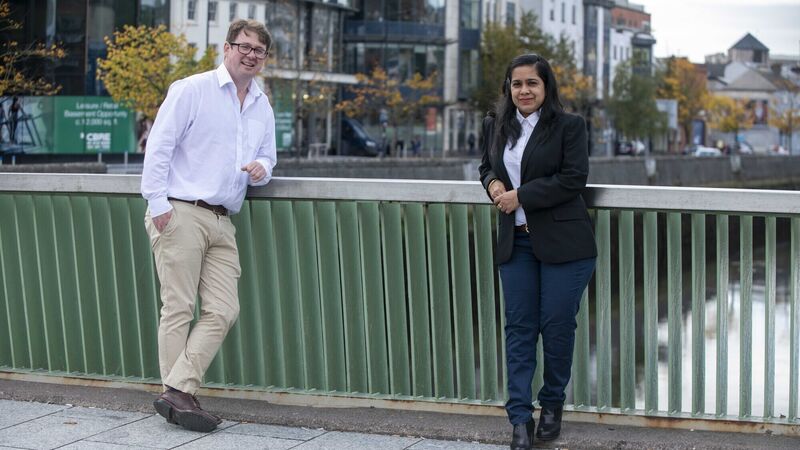Commercial building retrofit scheme could trigger over €200m in sustainable energy spend

Dr Pádraig Lyons, head of group, and Ruchi Agrawal, integrated energy system researcher, at the International Energy Research Centre, Tyndall National Institute. Picture: Brian Lougheed
A new pilot scheme is encouraging commercial building owners to retrofit properties in a project which could trigger hundreds of millions of euro of investment in sustainable energy.
The International Energy Research Centre (IERC), based at Tyndall National Institute in Cork, is leading an initiative to trial solutions, which could remove the split-incentive problem, which it says is resulting in a significant level of untapped energy saving in the commercial rental sector.













